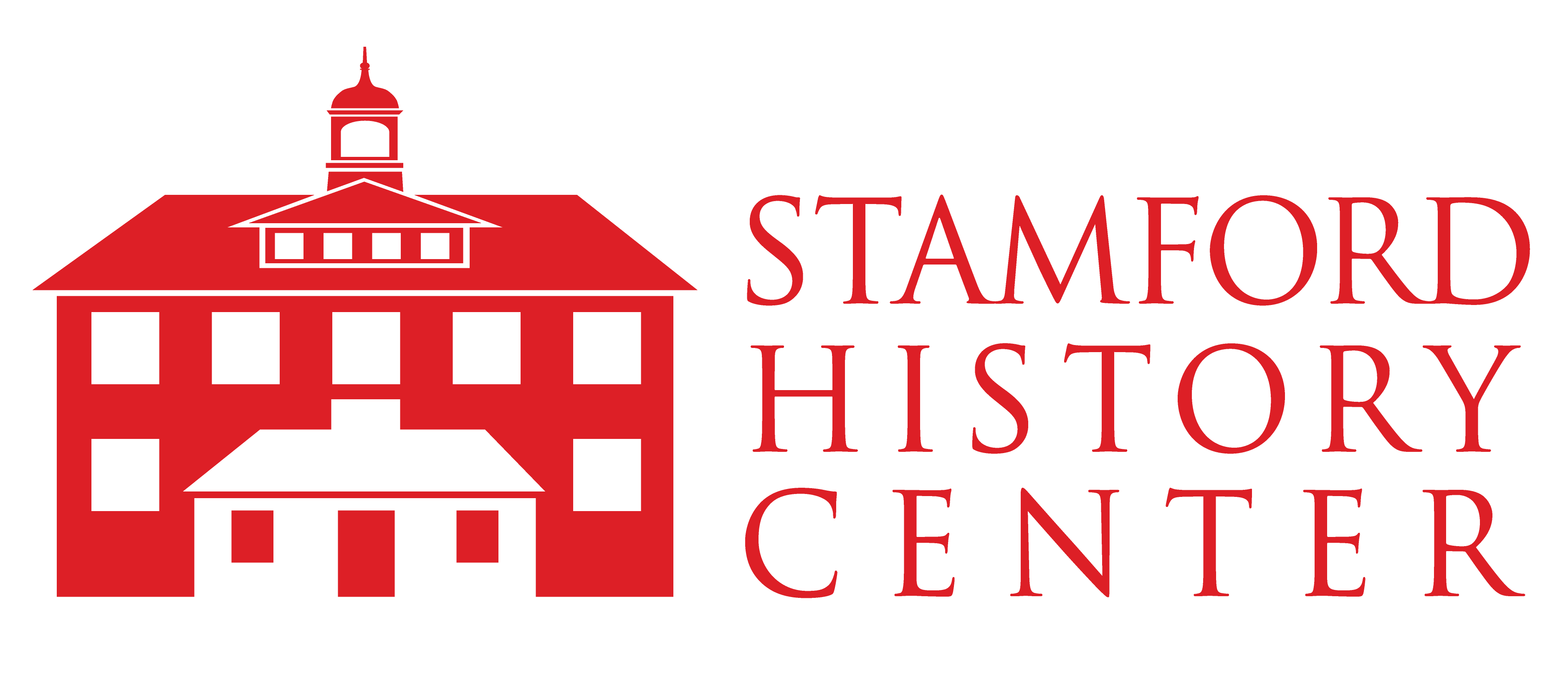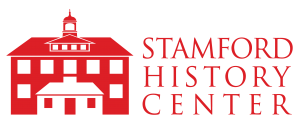
Mission Statement
The Stamford History Center, the municipal historian of Stamford, is an educational and research institution whose primary functions are to collect, conserve, interpret, and share artifacts and information relating to greater Stamford, to engage citizens in the telling of their stories.
Vision:The Stamford History Center is dedicated to preserving regional history and our varied cultural heritage. We provide opportunities for our community to understand and experience the past through our library, the presentation of exhibits and displays, lectures, demonstrations, special events, participatory programs, and tours of the unique Hoyt-Barnum House, built in 1699.
History
The Stamford Historical Society was founded in 1901 and incorporated in 1909. Like most historical societies, organized at the beginning of the twentieth century, the then world of Stamford smokestack industries and immigrant labor was ignored. The Society's founders looked for inspiration to an earlier, pre-smokestack time, and focused on collecting artifacts and objects from the 17th and 18th centuries.
As with many Americans of the era, the founders viewed the past as largely immutable, and their 17th and 18th century forebears as largely rooted in one spot. Today it is recognized that the constant movement of settlers has been an American trait since the first generation arrived, built their meeting houses, and excluded later arrivals from them.
The early Stamford Historical Society collections ignored Long Island Sound, and the town's access to the sea, despite the evidence that Stamford was built where it is because of its access to the water.
The Society's collections prior to 1979 concentrated on objects thought to have been made before machines, such as wooden implements, early furniture, ironware, earthenware, pewter and silver. The focus was also directed toward the interior agrarian economy and the American farmer. The fact that many of the forms that were part of the collection were made by industrial processes (lathes, molds etc.) and used division of labor (joiners and turners) was for the most part overlooked.
The 1699 depicts Stamford's colonial Puritan past through the inventory of Samuel Hoyt, blacksmith, who died in 1738. David Barnum's 1838 inventory is also interpreted to reflect the farming, cottage industry era of Stamford before the canal and railroad transformed Stamford into a bustling, industrial town.
1979 was a turning point for the Society. It was in 1979 that The Society was named principal beneficiary of the Cruikshank Collection. The Collection is composed of objects without a tradition of Stamford ownership of manufacture. We now recognize that Stamford was a port town, connected to the world by water for much of its history, and that goods used in Stamford may not have been made locally. This present recognition brings us in line with modern scholarship, which recognizes the importance of constant movement and change in American history.
With the Society's move to its present headquarters in 1984, the mission and purpose became more clearly defined. As an exhibit-oriented and educational institution which collects, preserves, conserves and interprets materials relating to the history of Stamford and Connecticut between the 17th and 20th centuries, The Society reflects the diversity and change that this region has experienced.
In November of 2016, the City of Stamford arranged for the move of Hoyt-Barnum House to the Historical Society's North Stamford campus at 1508 High Ridge Road. The Board of Directors voted to use the name, Stamford History Center, to reflect the physical change of the organization. We also hope that people will view us as the true history center for the City of Stamford and will welcome the opportunity to learn more about the evolution of Stamford. What has happened and what is happening is being retained for future generations by the Stamford History Center.
A Center for History, Culture and Tradition: A Case for History
- preserving the past
- defining the present
- connecting with the future
Why Do We Need A History Center?
The Stamford History Center helps people know about, experience and value their own and the region's history, culture and traditions so that this understanding may enhance their experience of the present and the future. The lessons of the past offer much to solve the problems of the present and prepare for challenges to come.
For children to grow up whole, and ready to take their places in the world, they must have assets: not stock certificates, but the personal assets of healthy self-esteem, appreciation for their origins, feelings of connectedness, belonging, and responsibility to a larger community. These inner resources help them withstand the pitfalls of growing up, expand their understanding of what they might accomplish, and strengthen them to pursue a future full of promise. It is precisely because we must address society's urgent problems of today that we look to our history, culture and traditions.
To understand the importance of cultural tradition, one need only compare the experience of religious groups who came to this country to exercise their traditions freely with that of people indigenous to North America and people brought to this continent against their will, both of whose cultural traditions were broken down by outside forces.
As technology depersonalizes the way we live, work, communicate and relate to one another, it expands the importance of being able to see in the flesh the wonders of what used to be. Research on the Internet can never produce the awe of seeing the real life diaries of a Civil War veteran or the relics of how ancestors experienced defining moments in their lives. As corporations move us from place to place around the country and the world, the connection of history brings us closer to community and to home. It is the role of History and of this organization to give our children, and their elders, a sense of being part of a continuum that began with the dawn of civilization and will continue with their own progeny; we help them recognize the value of their own and others' ancient cultures: we encourage them to find and cross a bridge between the past and the present and use this understanding to construct their own bridges to the future; we give them a sense of family and societal traditions; and a feeling of being an integral part of the human community.
A Community Partnership
As an independent nonprofit organization, The Stamford History Center depends on the commitment, involvement and contributions of the generous community it serves. Its remarkably rich array of programs and services is supported by a modest annual budget. Program-related income membership dues, admissions, special events, seminars and Thrift Shop sales provides about half the funds needed to sustain the current level of programming. The other half must be raised each year in contributions from individuals, businesses, foundations and community organizations.
The City of Stamford provides the location for our Center for History, Culture, and Tradition in the 1914 building that was first the Willard School and later the Martha Hoyt School at 1508 High Ridge Road.
A number dedicated and knowledgeable volunteers give countless hours of their time each year to make programs and facilities fascinating and easy-to-use. They are rigorously trained as professionals to offer assistance with research, conduct tours, present programs, and work to conserve the permanent collection. They organize community events that draw hundreds of children and adults into first-hand experiences of moments in times past.
The society's operation depends mainly on volunteers !
The History Center's website is the primary gateway for public access to the tremendous wealth of our historical resources:
The is a specialized collection dealing in depth with the history of Stamford, from pre-settlement to the present. Its holdings consists of books, pamphlets, periodicals, and boxed manuscript materials dating back as far as the 17th century. A number of its material or lists thereof are . A work in progress is adding our book holdings to the online catalog of the . The hold over 10,000 images, dating back to Civil War times, in a wide variety of formats.
The History Center has a presence on .
The History Center mounts at least one exhibit per year, frequently complemented by online versions. .
We ask you to join in partnership with the History Center by becoming a member, by volunteering your time and talent, by actively participating in programs, and by offering your financial support to assure that this first century of achievement will provide the foundation in history, culture and tradition for the people of Stamford in the next century.
| Joseph Maida, Tom Zoubek |
| Joseph Maida, Chairman Dr. Thomas Zoubek, Executive Director |






